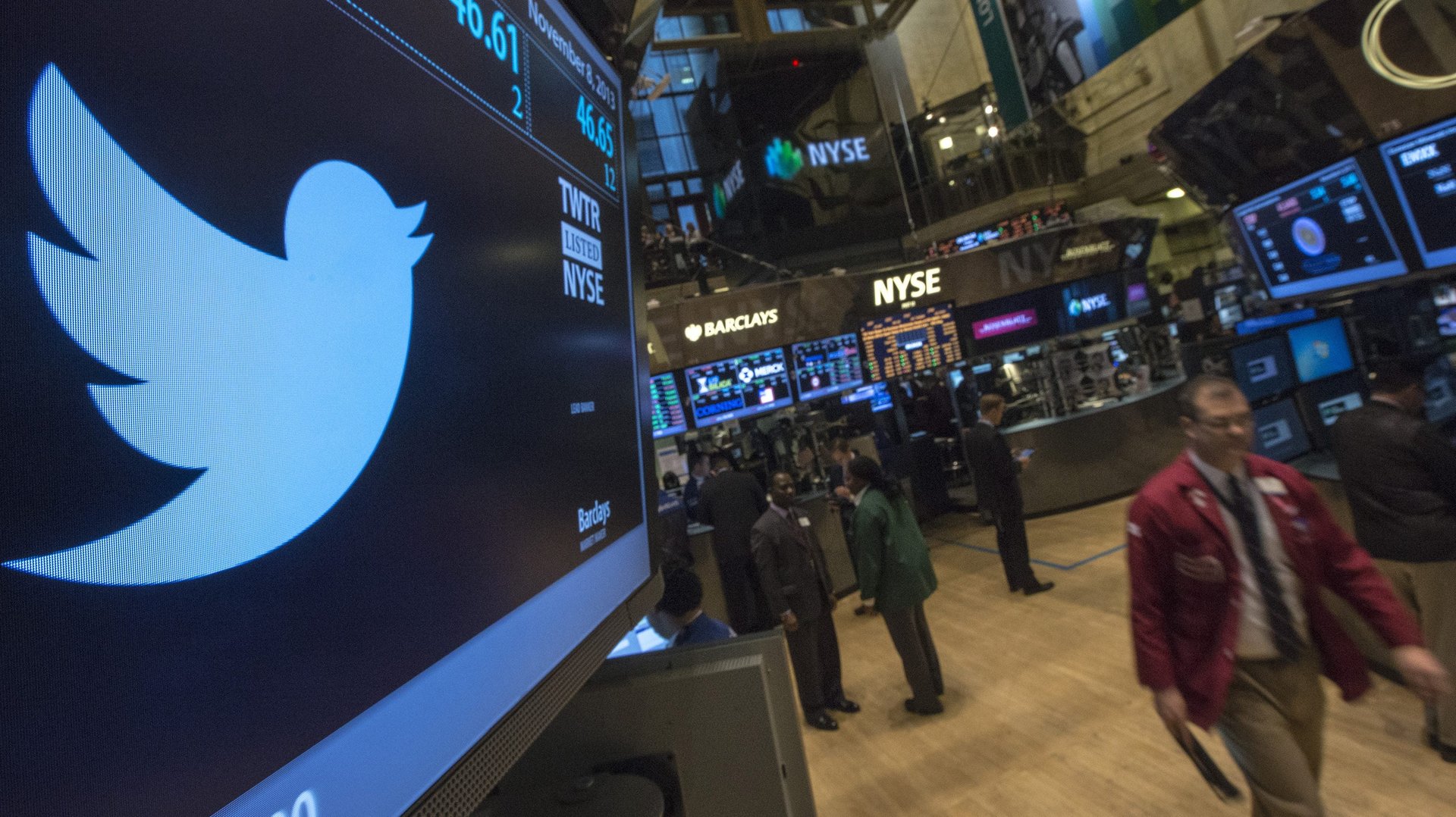Finance Twitter is getting its own Dow Jones index
Retail investors are invading Wall Street. Last winter, social media users rallied around meme stocks, promoting favored companies on social media and sending the companies’ share values skyward despite institutional investors betting against them. Professional investors lost billions of dollars.


Retail investors are invading Wall Street. Last winter, social media users rallied around meme stocks, promoting favored companies on social media and sending the companies’ share values skyward despite institutional investors betting against them. Professional investors lost billions of dollars.
These changing dynamics have shown Wall Street that it can no longer ignore what retail traders are saying about stocks on social media. To deal with this, Wall Street is developing new tools.
On Nov. 18, Twitter and the S&P Dow Jones Indices announced two new indices focused on online stock chatter. The two new market indices use Twitter API data to measure “sentiment scores” about S&P 500 companies. One index tracks the top 200 companies by positive sentiment and another tracks the top 50 weighted equally. The indices specifically parse so-called cashtags, like $TSLA for Tesla, and sift out tweets considered spam. The line, however, between spam and coordinated trading activity on social media is murky.
This will allow traders to better understand retail sentiment as it bubbles up.
Wall Street adjusts to the retail investor
Social listening tools are nothing new, but Wall Street is now paying close attention to social media sentiment and adjusting its strategies. Already, institutional investors on Wall Street are reevaluating the role of short-selling stock and paying attention to communities like WallStreetBets for intelligence about where retail armies are next to strike.
GameStop proved to be a warning shot for Wall Street. In January 2021, retail traders organized on social media to buy up shares of GameStop, bolstering the stock price and squeezing Wall Street short-sellers. Shares of GameStop rose from $17.25 at the start of the year to a staggering $347 at its peak later that same month. Almost a year later, the stock is still north of $200 a share. One hedge fund betting against GameStop shut down in June 2021, while another lost 50% of its investments in the first quarter of 2021.
Now speculative rallies fueled by enthusiasm on social media platforms such as Reddit, and enabled by no-fee trading, are almost commonplace. AMC, Bed Bath & Beyond, Nokia, and Blackberry have each experienced similar effects stemming from frenzied retail trader interest. In some cases, retail investors now outnumber institutional investors, like with AMC where retail investors own about 70% of all shares.
Meme stocks move the market
Speculative trading has boomed during the pandemic. Millions of new retail traders, younger and more diverse than ever, opened up brokerage accounts. While online stock chatter is as old as the web—recall Yahoo investment message boards of the 1990s—communities like WallStreetBets on Reddit and Discord, as well as financial influencers on YouTube, TikTok, and Twitter, are popping up to direct legions toward and away from different investments.
While the GameStop short squeeze did not start until January 2021, interest from retail traders was already rising on social media. Reddit’s WallStreetBets community, which was started in 2012, quadrupled in membership from 450,000 in January 2019 to 1.8 million at the beginning of January 2021. (By February, as the GameStop saga continued, membership skyrocketed north of 8.5 million.) Twitter is also a well-established hub for financial news and conversations about stocks. Twitter said that US financial chatter rose 26% between 2019 and 3020—before the rise of meme stocks.
A new era for Wall Street
Power dynamics on Wall Street are already shifting in this new era. Not every meme stock is on the S&P 500—GameStop and Bed Bath & Beyond are, for example, AMC is not—but Wall Street will likely use these indices to track what stocks retail investors like and any drastic changes when it is revised at the start of each month.
Kevin Mullally, a finance professor at the University of Central Florida, thinks that meme stocks are still an exception to the rule—institutional investors still hold the vast majority of capital on Wall Street. But he thinks there’s definitely a use for the new indices and similar tools. “If I were an institutional investor, I think [social media sentiment] would factor in,” he said. “Is there ever a safe position when the mob could turn on me?”
The pulse of Finance Twitter promises to be an important barometer for Wall Street institutions now concerned about the rising influence of the retail investor.
This article has been updated with a comment from UCF professor Kevin Mullally.